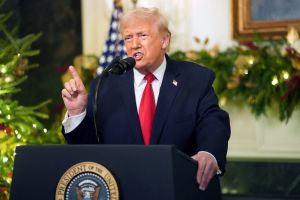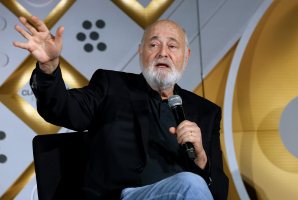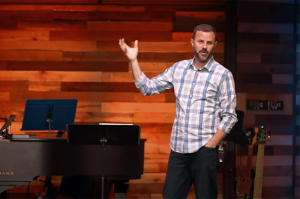Anglican Head Comments on Concluding Document
Following the release of a conclusive communiqué on Monday, the head of the worldwide Anglican Communion clarified that recommendations in the document are a "package," rather than a single proposal to help resolve divisions around the Episcopal Church.
A five-day meeting with the top bishops of the worldwide Anglican denomination's provinces that concluded Monday was dominated by the controversy over the Episcopal Church and its response to a 2004 Windsor Report that called for a moratorium on consecrating homosexuals and blessing same-sex unions. A communiqué at the conclusion of the meeting in Tanzania called the U.S. Anglican wing to clarify its position on homosexuals by Sept. 30 as the 38 primates reasserted that homosexuality is incompatible with Scripture.
"In short, the feeling of the meeting as a whole was that the response of the General Convention of The Episcopal Church to the recommendations of the Windsor report, a response made at General Convention last year, represented some steps in a very encouraging direction but did not yet represent a situation in which we could say ‘business as usual,'" said Archbishop of Canterbury Rowan Williams, head of the Anglican Communion.
The communiqué and an earlier report by the Communion sub-group, headed by Williams, had revealed that the Episcopal Church has taken "seriously" the recommendations of the Windsor Report but there also was a "lack of clarity" from the U.S. body on its stance on homosexual unions.
"The response of The Episcopal Church to the requests made at Dromantine has not persuaded this meeting that we are yet in a position to recognize that The Episcopal Church has mended its broken relationships," stated the communiqué.
With conservative Anglicans in the United States seeking a way to realign with the Anglican Communion, arguing that the Episcopal Church has departed from Scripture and the Communion especially when it consecrated an openly gay bishop in 2003, foreign provinces such as the Church of Nigeria intervened to create a separate body for the dissident Episcopalians. Such interventions were described as exacerbating the situation, according to the communiqué.
Williams recognized the good intentions of the foreign provinces but said that those could "only be a temporary solution."
"The preferable solution is to have some kind of settlement negotiated within the church life of the United States," said Williams.
A proposal was made to establish a pastoral council with five members nominated by the Primates, the Presiding Bishop, and the Archbishop of Canterbury. The council would provide pastoral care within the Episcopal Church for the minority.
According to Williams, Archbishop Peter Akinola of the Church of Nigeria, who had warned of a break if the Anglican Communion does not resolve the issue over the Episcopal Church and homosexuality, declared that he is prepared to support the concluding Primates meeting document.
“I’d like to put it in the context of the Covenant process which you’ve already heard a little about and to suggest to you that what it amounts to is a package,” he said, “not one single proposal, not one single scheme, but a way of encouraging and nurturing certain elements in The Episcopal Church a way of clarifying the challenge overall that the Communion wants to put to The Episcopal Church within that time frame during which the covenant will be discussed and we hope eventually accepted."
A proposed Anglican Covenant was released Feb. 19 and is intended to articulate the common foundations and set out principles that bind the Anglican Communion. Ralph Webb, director of the Institute on Religion and Democracy, welcomed the emphasis on interdependence in the drafted Covenant to restore the Anglican Communion, but believes the Episcopal Church would choose autonomy over interdependence.
"While the covenant is only a draft, it is worth asking whether the Episcopal Church would sign it at this stage," said Webb in a released statement. "Does the Episcopal Church want autonomy or interdependence? Put another way, will it be an agent of healing for the Communion of which it is a part? Sadly, its actions to date suggest that if push comes to shove, it will choose independence over fellowship."
As for the invitations for the decennial Lambeth Conference in 2008, Williams said he does not "pre-empt a decision but that'll have to be discussed." Those invited to the Lambeth Conference would be an indication of those in continued Communion with the global Anglican Church.



























